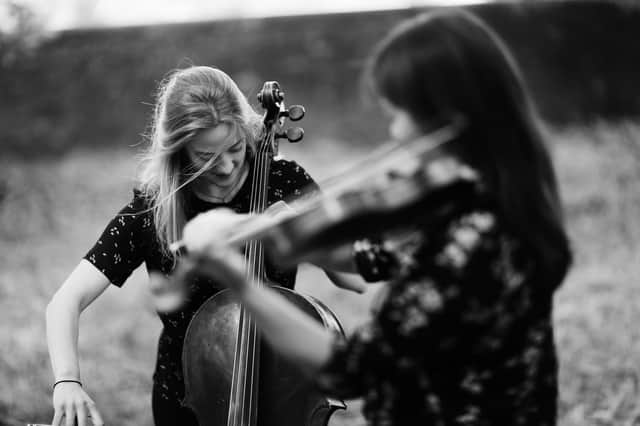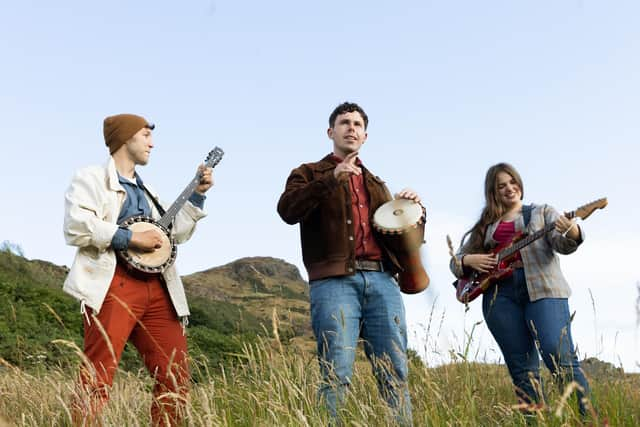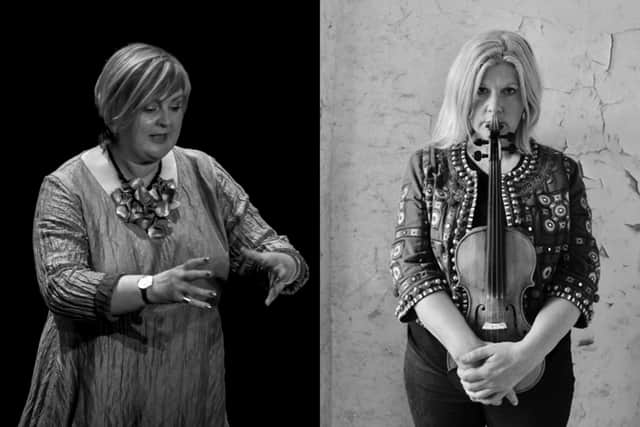Music to play key role in Scottish International Storytelling Festival


In a world where global news and wall-to-wall entertainment can be with us – indeed too much with us – at the tap of a keyboard, the elemental art of oral storytelling is flourishing, seemingly against the odds, as testified vigorously by the forthcoming Scottish International Storytelling Festival, which runs for 18 days from 14 October.
Organised by Traditional Arts and Culture Scotland (TRACS) and held annually since 1989, this year’s festival is the largest yet – appropriately enough for Scotland’s Government-designated Year of Stories, as its director, Donald Smith, points out: “It is our widest reach culturally, socially and geographically.”
Advertisement
Hide AdAdvertisement
Hide AdWith its hub in Edinburgh’s Scottish Storytelling Centre and outlying events spread across the city and further afield, the festival’s slogan is “Keep It Lit”, symbolically inviting everyone to its hospitable hearth – locally and globally. As its live events showcase traditions from around the world, the festival will invite international audiences to join them with a series of digital events.


Its packed programme includes numerous strands, including a series of informal Open Hearth sessions as well as a Map of Stories sequence of multimedia celebrations of Scotland’s rich storytelling heritage. Led by arts collective Transgressive North, Map of Stories (and its associated website) will highlight current tradition bearers as well as such renowned but departed figures as Perthshire Traveller Sheila Stewart OBE, Gaelic bard Norman Maclean and Aberdeenshire’s inimitable Stanley Robertson.
International festival guests include Hungarian storytellers Lily Asch and Csenge Virág Zalka, while Mi’kmaq storyteller Julie Pellissier-Lush and John Shaw share tales from Native Canadian and Gaelic cultures.
Music, of course, complements the tale-spinning across the programme, and far from being confined to folklore or antiquity, issues raised are often very relevant today. The Friday opening concert at the Netherbow, Speak Out the Other, is no exception, as young Edinburgh storyteller-musicians Mark Borthwick, Ailsa Dixon and David Hughes explore the “‘otherness’ of queer identities permeating Scottish myth”.
Also examining gender, as well as race, A Fairie Tale reimagines the venerable ballad of Thomas the Rhymer. Written by Niall Moorjanni with cello accompaniment from Diana Redgrave, it offers “an evening of strangeness, sexy fairies and swearing”.


In the historic St Cecilia’s Hall, meanwhile, Binnorie: Fiddles and Women's Stories, sees Marie Fielding play fiddles once owned by such icons as James Hogg, William Marshall and James Scott Skinner, but also, with storyteller Beverley Bryant, investigate the women who crop up in their tune titles.
The airy acoustic of the Canongate Kirk hosts the premiere of Landscapes and Dances, Songs She Scored Out, a new work by harpist Aillie Robertson inspired by Craiglockhart Hill, performed with violinist Katrina Lee and cellist Alice Allen. The piece is part of St Mary’s Music School’s Seven Hills Project, with each of Edinburgh’s hills inspiring a composition as well as a poem by Alexander McCall Smith.
Advertisement
Hide AdAdvertisement
Hide AdMulti-instrumentalist and storyteller Marion Kenny and trombonist John Kenny, who plays that fearsome ancient horn, the carnyx, reanimate the saga of Sgiath: Warrior Queen of Skye. Highland-based violinist Anne Wood, on the other hand, looks to her travels in Pakistan in her multi-media show When Mountains Meet, in which storytelling and Scottish and south Indian music celebrate cultural diversity.
David Campbell, former BBC broadcaster and a mainstay of the storytelling scene, once told me: “The screens in which people bury themselves really put us in a kind of solitary confinement. I think both the folk song revival and the storytelling revival are symptoms of people really needing to be together."
Campbell was inspired by his friendship with the late Duncan Williamson, Traveller storyteller extraordinaire, and Williamson’s memory, along with that of another fondly remembered figure, Betsy Whyte, is celebrated in this year’s Alan Bruford Lecture by the eminent scholar Professor John T Niles. Presented by Edinburgh University’s Department of Celtic and Scottish Studies, the lecture is titled Storytelling and Worldview: The legacy of Duncan Williamson and Betsy Whyte.
For full programme details, visit www.sisf.org.uk